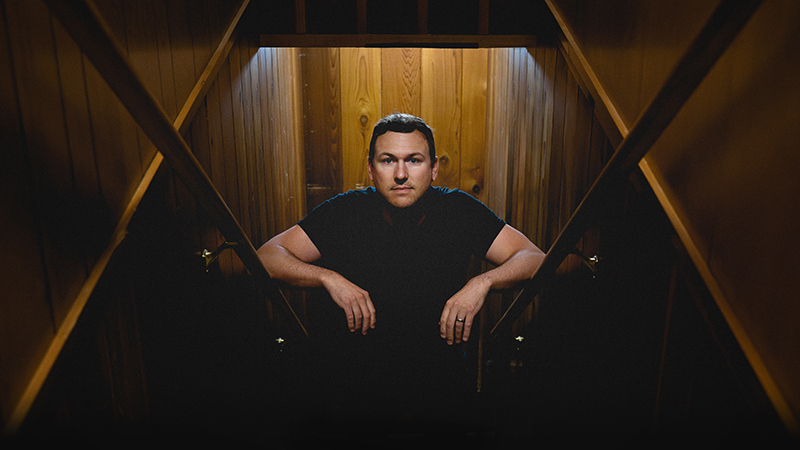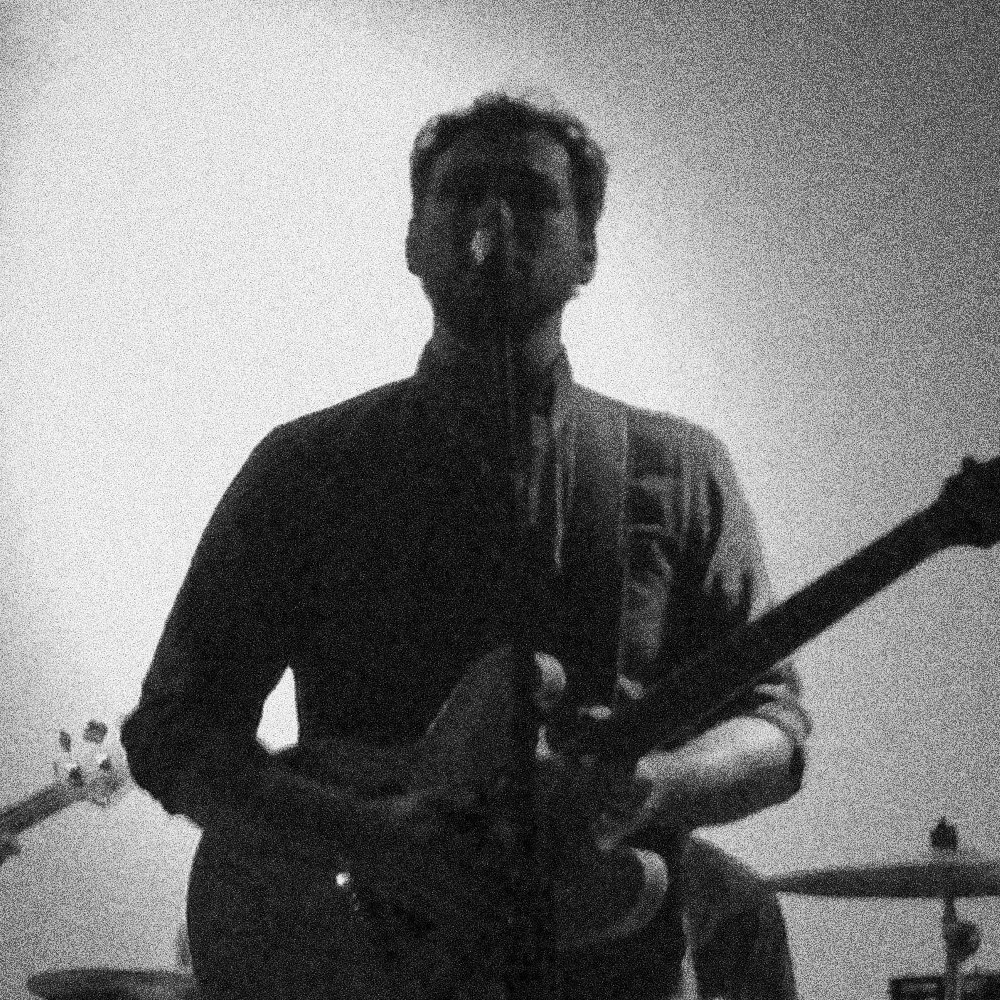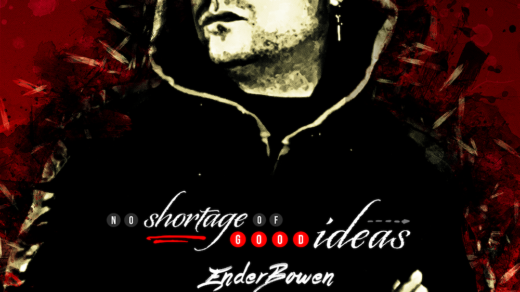We talk about the new single “Some Kind Of Hollywood”, his production style, musical influences, and his thoughts about AI-generated art and music
Twin Solitaire is the Seatle-based musical artist Bryan Hall, a multi-instrumentalist who writes and records his original indie-rock music in his private studio. His new release, “Some Kind of Hollywood” is a delicious cocktail made up of one part The National, one part The Replacements, and a splash of Simple Minds, because he sure knows how to use reverb in the mix. We were fortunate to have a conversation with Bryan about his music, his production style, and his musical influences.
1. Congratulations on your new release “Some Kind of Hollywood”. We love the melody, upbeat tempo and appreciate great songwriting when we hear it. Your release has some 90’s elements of power and rock pop, and the ‘real instruments’ used for the recording are refreshing to hear.
Thank you. I appreciate you taking the time to listen and its always wonderful to get a positive response to a song. I love that you mentioned the real instruments. The quality that analog instruments bring to a song performance and recording are so important to me. They create a human or unexpected element where something can be appreciated because of the imperfection.
BH
2. What is your take on the recording process for “Some Kind of Hollywood” starting on acoustic guitar and then transitioning to electric guitar with a fully produced backing band? Are you self-produced? Are you a multi-instrumentalist?
I tend to start on acoustic when writing as it allows me to iterate quickly and experiment with chord progressions and lyrics until I feel like I’m on to something good. I’m constantly adjusting and playing with the arrangement and structure of a song and the acoustic guitar is a nice way for me to focus on the foundation before moving on to other instrumentation and musical parts. Sometimes songs keep a more stripped down or acoustic sound through the recording process, but “Some Kind of Hollywood” started to feel really cool when I added the rhythm section, so I just kept going in that direction.
BH
I self-produce my songs in my little home studio set-up. The name Twin Solitaire comes from the dynamic of both writing and producing music on my own. The duality of being both creator and critic. Musician and producer. I play guitar, bass, keyboard, and sing all the vocals on the track. The only instrument that is purely digital are the drums, mostly because I don’t have the room for a kit. I compose the drums and use some plugins and production techniques to try to capture an authentic drum kit sound.
BH
3. Did you refer to any bands you grew up listening to for the production of this song?
For the production specifically, I’ve been referencing bands like The War on Drugs, The National, and Fleet Foxes. I really like the general vibe of how they bring a full band together to form a cohesive sound. The bands I grew up listening to have a huge impact on my musical tastes and how I go about writing songs. Radiohead, Third Eye Blind, Bright Eyes, and Death Cab for Cutie are some of my favorites.
BH
4. We read that you are from Seattle, a city that is famous for the grunge music scene in the 90’s. What is the scene there now? Are you part of it and have any bands to mention that you play shows with on a regular basis?
Grunge had a huge influence on me growing up in the Seattle area in the 90s and still sets the foundation for my musical interests in a lot of ways. I moved to an island right outside Seattle with my family about three years ago, so I haven’t been directly involved with the music scene in the city for a while. Coming out of the pandemic it’s been awesome to see iconic venues come back to life and so encouraging to know that the Seattle music scene is alive and well.
BH
7. Now that you have released your first single after taking a two-year hiatus, do you feel like this has opened a floodgate of inspiration and that you will be releasing more music in the near future?
Years ago, I received some advice on creativity along the lines of, “If you share your work, ideas, or inspiration it leads to more creativity. Keeping a creative output to yourself until its perfect prevents you from growing.” I was guilty of holding onto some songs that were already produced with the intention of tweaking one last thing or adding one more part and “Some Kind of Hollywood” was one of those songs. Once I let the idea of perfection go and just decided to release the song it opened the space for me to create something new. I’ve written three new songs in just the last month that I’m really excited about.
BH
6. How important are playing shows and performing to you? Is this how you flush out new songs before you record them?
Currently I’m really enjoying the writing, recording, and producing process. It fits nicely into the rest of my life that way. Eventually I’d like to play some shows—mostly because its just so much fun. I’m planning on releasing either an EP or full album within the next year, so I could see playing some shows in support of that for sure.
BH
8. Tell us about your past work as an artist, were you a member of any bands in the past? Did you study music in the past? Tell us about your musical background.
Just some small bands that shall remain nameless haha. The most noteworthy project started with me writing and playing with one of my closest friends, who also plays guitar. From that we formed a band and played small venues around Seattle for a while before it got more difficult to find the time with people starting families, careers, moving, and all that.
Other than a music theory 101 course I took in college I’m self-taught. My dad played a bit of guitar, so there was always an acoustic around the house growing up. Eventually I picked it up and found a songbook with pop songs from the 60s, 70s, and 80s with chords and lyrics and I just started going for it. It wasn’t the most efficient way to learn as it took me 10 years to get around to learning scales and proper technique, but I was always more interested in the music, lyrics and song structure so it was the right journey for me.
BH
9. What are your small and long-term goals with your music?
Both pretty modest I’d say. In the short term to release 6-10 songs this year and play some shows in support of that. In the long term, just being able to continue making music, writing songs, and becoming a more experienced producer. I’m very grateful that I’ve been able to put together a home studio that allows me to create on my own time. So just seeing where that goes without any expectations or pressure is a great place to be for me right now.
BH
10. And lastly… the issue that is on everyone’s mind lately. What is your feeling/opinion about AI-generated music creeping into the mainstream?
My full-time job is in the field of graphic design, so AI is a topic that has been on my mind regarding art/design as well as music. My opinion has mostly formed through conversations with colleagues and thinking about the implications on my design career. Of course, there are a lot of nuances and it’s likely going to affect many people’s lives, both good and bad, so I’ll try to keep my answer neutral in terms of the human costs that are very real and will need to be addressed at some point. I tend to think of AI-generated music and art in terms of other technology advances and tools and the impact they’ve had in the last century. Things change due to these advances, but most of the time, things don’t go away—they grow and evolve. When photography was a new medium, painting didn’t go way, instead we got impressionism, abstract expressionism, pop art, etc. Same with 3D design and animation—it wasn’t the death of hand-drawn cell animation, rather it helped 2D animation break out of the pervasive Disney style and evolve in some really cool ways. Right now, we’re in an unknown place with both art/design and music where we aren’t sure what is going to happen and how each medium will need to change and evolve along with this really powerful new tool. It’s both scary and exciting – a lot of uncertainty and a lot of opportunity. So, I guess I’m cautiously optimistic about the future.
BH
Listen to Twin Solitaire on Spotify
Connect with Twin Solitaire on Instagram





